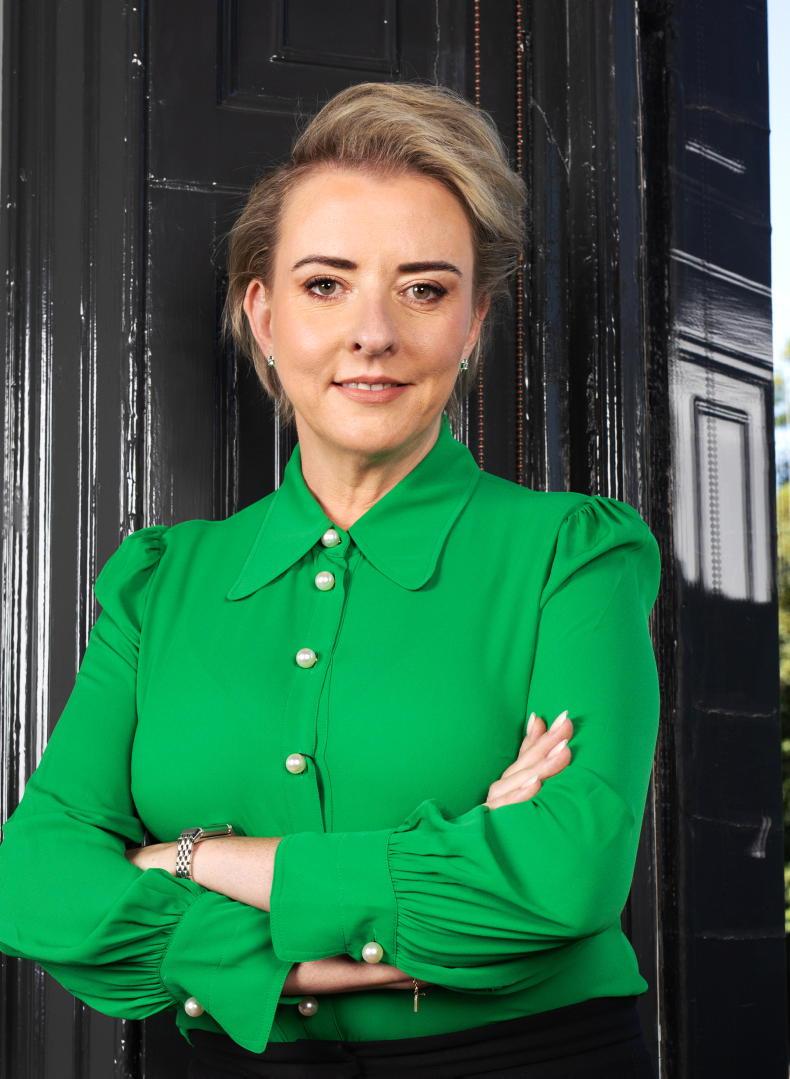The cost of an average Irish wedding represents a huge financial investment by the couple at the heart of the big day. In fact, earlier this year, popular Irish wedding website weddingsonline.ie put the average spend on nuptials at €34,392, up 3.96%.
“Honestly, €30,000 is probably on the lower end of the average. The majority of the couples getting in touch with me are hitting the €40,000 mark,” says Sara Kennedy, who has over 20 years experience in the sector and runs The Aisle – by Sara Kennedy website.
“When we talk about inflation, the prices [for weddings] are sitting still now, but for the last couple of years, they have gone up and up because the venues and suppliers are getting hit by insurance premiums, electricity, gas, the cost of beef, the works, so naturally that is going to flow onto the customer.”
With a rising spend, should couples be preparing more for the unexpected? Given that it is probably the most costly one-day event in their lives, the answer is an overwhelming yes from Sara, who has worked through recessions and the pandemic and has been recommending wedding insurance for years to give couples that extra peace of mind should something go awry.

Sara Kennedy, founder of the The Aisle - by Sara Kennedy website, previously the Irish Wedding Blog.
The big challenge now, though, is that since earlier this year one of the main providers of wedding insurance in Ireland, Blue Insurance, no longer offers it to customers here. It means getting that higher level of protection is much more difficult.
In the past, several online sites were able to offer different levels of wedding insurance to financially compensate a couple if they had to cancel or rearrange the wedding because of an injury or sickness to the bride, groom or close family member or, very sadly, a death. But it also covered items like the loss or damage to rings, a wedding cake, transport or a no-show by a supplier for a relatively modest cost, on a monthly basis or a one-off payment.
“Blue Insurance was the main holder of wedding insurance; they had weddinginsurance.ie and they were underwriting for pretty much everyone else who had wedding insurance. However, they no longer provide it [in Ireland],” says Sara.
“I feel for couples because I know insurance is something they want, and they really need,” adds the wedding expert. “It is quite hard now [to find wedding insurance], but I do know couples who had success going to actual family brokers one-to-one by phone or walking in.”
Overseas options
It is a particularly important issue if the couple are going overseas for their big day, according to Sara. Brides and grooms should check with their wedding planner in the country they are travelling to see what options are available there and take out travel insurance, some of which offers the wedding cover as an add-on. It can mitigate the potential loss or theft of wedding gifts, rings, photos and attire.

Jane Brady, managing director of Brady Insurance.
Jane Brady is managing director of Brady Insurance, who have brokers in Carrick-on-Shannon, Strokestown and in Dublin. The firm has been a market leader since 2012 in the events and leisure space, operating eventinsure.ie and Brady Underwriting, where they sell event insurance to 200 brokers nationwide. The business has two types of cover that would apply to weddings.
“Our customers are people having civil ceremonies in a garden or a castle. They are having a wedding outside and then [bringing] catering in. It could even be in a community centre or a hall or a park,” she explains. Civil ceremonies always require liability insurance to cover an accident or fall on-site or damage to property, something often driven by the venue who will usually insist on it being in place.
Another key insurance the company offers is cancellation cover where a wedding or event has to be cancelled or postponed because of unforeseen circumstances.
“For instance, say your reception is in a marquee and there is high wind, or let’s say it was going to be an outdoor barbecue with 200 people coming and a caterer, and it’s absolutely lashing rain, and you have to find a new place to go.
“You have to put off the party part to another day, or it could be your venue. They could have had a storm two weeks ago, and it has not been repaired,” outlines Jane, who is deputy president of the Insurance Institute of Ireland.
This is a simple and inexpensive type of cover that customers can get easily. “It doesn’t take away from the stress and the drama it would cause you [cancelling], but it does mean you’re not out of pocket for a big chunk you didn’t plan for,” she says.
Whatever insurance you’re looking at, Muriel Dolan, deputy head of communications with the CCPC says always look for the excess on the policies; that is, the amount you agree to pay towards a claim.
Ensure engagement and wedding rings are in the contents of your home insurance, something that can be forgotten in the run-up to the big day, she adds.
The importance of doing “due diligence” in terms of research before booking any of your suppliers and asking about their own insurance and what plan is in place in the event of, say, a double booking or someone falling ill, is also vital according to Sara Kennedy.
You are asking about a plan B in the hope you’ll never need it.
See theaislebysarakennedy.ie; ccpc.ie or eventinsure.ie
The cost of an average Irish wedding represents a huge financial investment by the couple at the heart of the big day. In fact, earlier this year, popular Irish wedding website weddingsonline.ie put the average spend on nuptials at €34,392, up 3.96%.
“Honestly, €30,000 is probably on the lower end of the average. The majority of the couples getting in touch with me are hitting the €40,000 mark,” says Sara Kennedy, who has over 20 years experience in the sector and runs The Aisle – by Sara Kennedy website.
“When we talk about inflation, the prices [for weddings] are sitting still now, but for the last couple of years, they have gone up and up because the venues and suppliers are getting hit by insurance premiums, electricity, gas, the cost of beef, the works, so naturally that is going to flow onto the customer.”
With a rising spend, should couples be preparing more for the unexpected? Given that it is probably the most costly one-day event in their lives, the answer is an overwhelming yes from Sara, who has worked through recessions and the pandemic and has been recommending wedding insurance for years to give couples that extra peace of mind should something go awry.

Sara Kennedy, founder of the The Aisle - by Sara Kennedy website, previously the Irish Wedding Blog.
The big challenge now, though, is that since earlier this year one of the main providers of wedding insurance in Ireland, Blue Insurance, no longer offers it to customers here. It means getting that higher level of protection is much more difficult.
In the past, several online sites were able to offer different levels of wedding insurance to financially compensate a couple if they had to cancel or rearrange the wedding because of an injury or sickness to the bride, groom or close family member or, very sadly, a death. But it also covered items like the loss or damage to rings, a wedding cake, transport or a no-show by a supplier for a relatively modest cost, on a monthly basis or a one-off payment.
“Blue Insurance was the main holder of wedding insurance; they had weddinginsurance.ie and they were underwriting for pretty much everyone else who had wedding insurance. However, they no longer provide it [in Ireland],” says Sara.
“I feel for couples because I know insurance is something they want, and they really need,” adds the wedding expert. “It is quite hard now [to find wedding insurance], but I do know couples who had success going to actual family brokers one-to-one by phone or walking in.”
Overseas options
It is a particularly important issue if the couple are going overseas for their big day, according to Sara. Brides and grooms should check with their wedding planner in the country they are travelling to see what options are available there and take out travel insurance, some of which offers the wedding cover as an add-on. It can mitigate the potential loss or theft of wedding gifts, rings, photos and attire.

Jane Brady, managing director of Brady Insurance.
Jane Brady is managing director of Brady Insurance, who have brokers in Carrick-on-Shannon, Strokestown and in Dublin. The firm has been a market leader since 2012 in the events and leisure space, operating eventinsure.ie and Brady Underwriting, where they sell event insurance to 200 brokers nationwide. The business has two types of cover that would apply to weddings.
“Our customers are people having civil ceremonies in a garden or a castle. They are having a wedding outside and then [bringing] catering in. It could even be in a community centre or a hall or a park,” she explains. Civil ceremonies always require liability insurance to cover an accident or fall on-site or damage to property, something often driven by the venue who will usually insist on it being in place.
Another key insurance the company offers is cancellation cover where a wedding or event has to be cancelled or postponed because of unforeseen circumstances.
“For instance, say your reception is in a marquee and there is high wind, or let’s say it was going to be an outdoor barbecue with 200 people coming and a caterer, and it’s absolutely lashing rain, and you have to find a new place to go.
“You have to put off the party part to another day, or it could be your venue. They could have had a storm two weeks ago, and it has not been repaired,” outlines Jane, who is deputy president of the Insurance Institute of Ireland.
This is a simple and inexpensive type of cover that customers can get easily. “It doesn’t take away from the stress and the drama it would cause you [cancelling], but it does mean you’re not out of pocket for a big chunk you didn’t plan for,” she says.
Whatever insurance you’re looking at, Muriel Dolan, deputy head of communications with the CCPC says always look for the excess on the policies; that is, the amount you agree to pay towards a claim.
Ensure engagement and wedding rings are in the contents of your home insurance, something that can be forgotten in the run-up to the big day, she adds.
The importance of doing “due diligence” in terms of research before booking any of your suppliers and asking about their own insurance and what plan is in place in the event of, say, a double booking or someone falling ill, is also vital according to Sara Kennedy.
You are asking about a plan B in the hope you’ll never need it.
See theaislebysarakennedy.ie; ccpc.ie or eventinsure.ie








 This is a subscriber-only article
This is a subscriber-only article





SHARING OPTIONS: